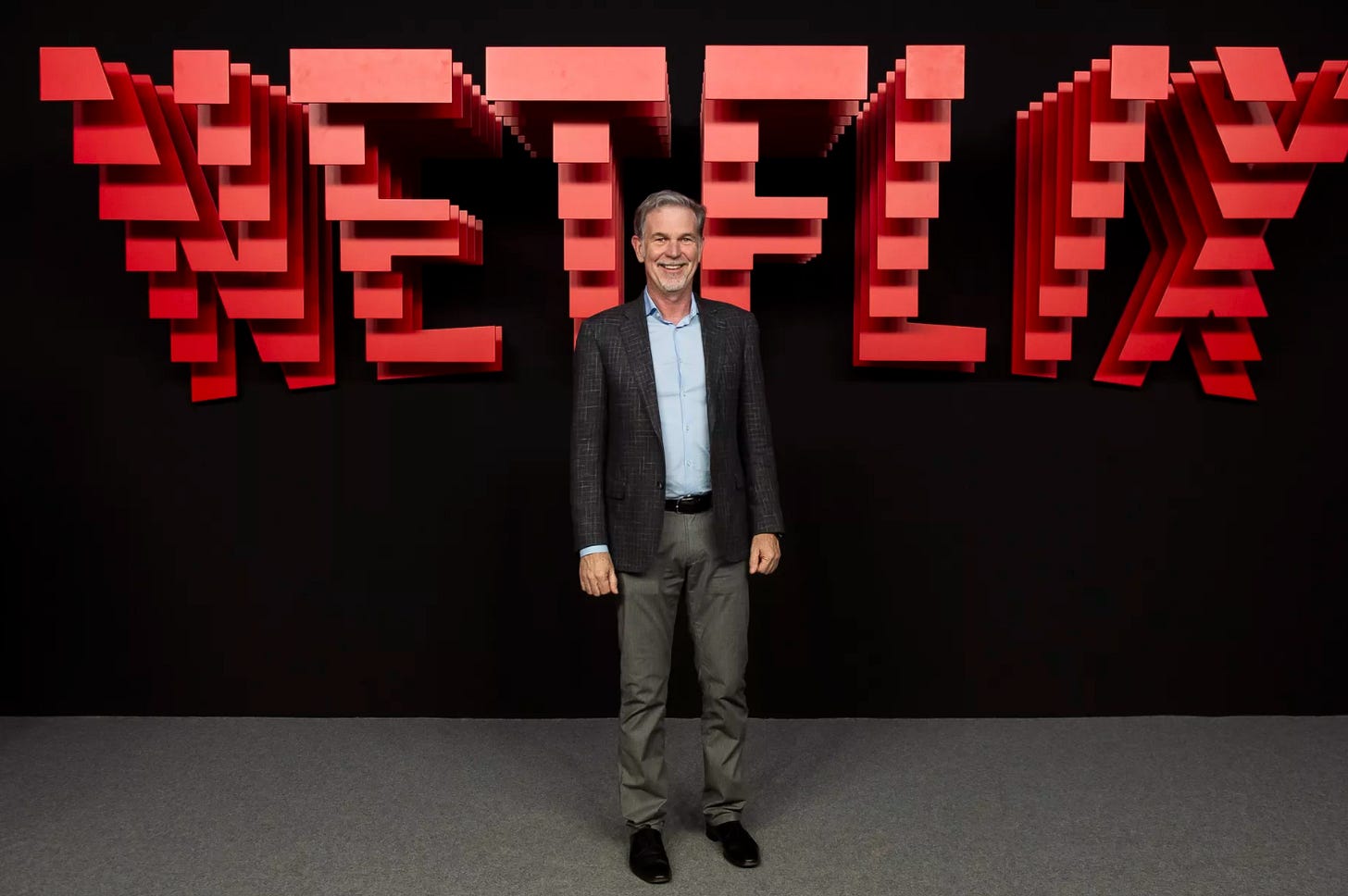The 12 questions every firm should be asking right now
Also: Inside the weird culture of Netflix / online learning

As discussed in the newsletter last week almost every business right now is working out what their new culture looks like - and in the absence of answers - commissioning experiments is pretty much the order of the day.
There seems to be a societal simmer beginning to bubble over as a result of the lockdown. Suppressed energy is spilling over in the streets - the fighting on the beaches of Britain has been anything but Churchillian, & every day brings more footage of angry ‘Kens and Karens’ in the US protesting masks being denied the right to catch a plague.
And meanwhile the sense of loss about missing workplace chatter is reaching a point where we’re finally starting to think straight about what the role of the office really was. As this week's podcast guest, Antony Slumbers, says 'no company ever wanted an office, they wanted a productive workforce' and if happy conversation was part of that then we need to replace it.
Digiday published research this week saying that:
48% of workers* are missing working in the office
60% miss socialising with colleagues
69% miss face-to-face collaboration
45% miss the ability to separate personal life and work life
(*these are advertising agency workers surveyed by Digiday, but it’s likely to be representative of wider sentiments in other sectors)
So as we start moving towards something of a summer break (!?) it’s a perfect opportunity for us to take stock and ask 12 big questions of each other. The more teams can (collectively) answer these questions the better they can design a new work culture to set them up to win. These questions are what I’ve worked on with a few firms over the last few weeks, by using team discussion to answer these prompts it can help us reach conclusions about, say, which days of the week we want teams to work together.
The 12 questions every firm should be asking right now
How does the work get done round here?
How do we best share information so people take it in?
How do we come up with our best ideas?
Where does the plan/strategy come from?
How do we make decisions?
What is our philosophy on meetings?
How important is culture to us - and when do we feel it most intensely?
How much do we value being together?
How do we intend our team members to get better at their jobs?
How do we create an inclusive environment?
How do we hire/onboard new people into the team?
What will our answers to these questions be in 18 months?
By answering these questions we can be more clear about the way we want to build our new team dynamic. Are we willing to agree hard rules to allow some of the benefits of being together to be shaped? Do we want to mandate that everyone comes into the office on Tuesday and Wednesday? If so, we should start experimenting with that sooner rather than later. Read more on a discussion of these questions here. (12 questions as a PDF).
This week’s Eat Sleep Work Repeat podcast is a discussion with the brilliantly insightful Antony Slumbers - who is a predictor of trends in the commercial real estate market. He talks about:
a reminder that no company wants an office, they want a productive workforce - an office was how they achieved that
how we need to ensure that offices bring us together - we can only do that when we agree and commit
"in the same way we realised we didn't need a shop to go shopping we've realised we don't need an office to do work"
Inside the weird culture of Netflix

A fantastic new podcast dropped (from Vox, not me!) about Netflix’ culture. It goes into more detail about the weird quirks of a culture that sounds cut-throat and impressive in equal measure. If you’re still not keen to listen here’s what you’d have learned:
senior managers at Netflix get massive freedom to sign away costs, and one example was that House of Cards ($100m cost) was commissioned without the CEO’s approval
How firing under-performers led to their performance going up (and so created their Hunger Games style firing philosophy)
They asked ‘why?’ when someone told them they now needed to create an employee handbook and rules
‘The Keeper test’ - how every manager is asked to decide which of their team they would fight to keep (and how they need to fire the rest)
This thread about the future of online learning has some interesting lessons for work, work events and conferences.

YouTube will eat the low-end of the market - this is certainly true for events as well as education. I’ve attended a few conferences over the last few weeks and it’s become clear that having a critical mass of attendees is the most important thing. When you only have 20 people watching everything else becomes irrelevant. It’s why the Nudgestock model of streaming to as big an audience as possible on YouTube and LinkedIn will surely be the default unless it is a highly premium event.

Commercial rents to half: If tenants give up 10% of their space in the next 5 years rental on vacant spaces will half
good piece about how remote work is an important step in the journey to fighting climate change - transportation is the number one source of emissions. “Incentivising these employees to work from home just two or three days a week will reduce their typical commute-based greenhouse gas emissions by half, immediately.” [I found this via the brilliant Heated newsletter]
I saw a Twitter alum created this presentation tool, Projector. Video game graphics on online presentations. Looks amazing
Yes, 75% of workers say they are more productive at home but many of us are missing spontaneous human interaction.
This is a different take - the boss of Presi (the presentation tool) saying that we’re going to get more asynchronous video meetings (basically the boss sends a video then people share their thoughts). *Scratch chin emoji*
A long post from Quora about them moving to remote work. TL;DR: they’ve gone remote first. No kidding.
Make Work Better is created by Bruce Daisley, workplace culture enthusiast. You can find more about Bruce’s book, podcast and writing at the website. If you’re looking to facilitate a leadership discussion about work culture - or just a lunchtime talk to the team, get in touch!



